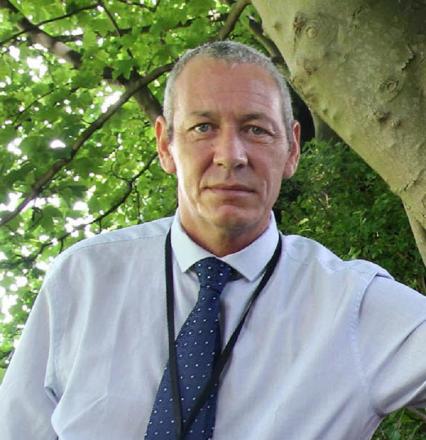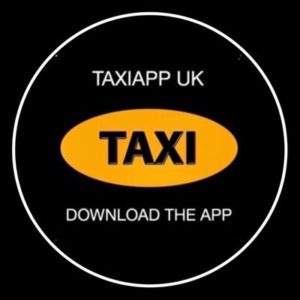by News Desk | Apr 28, 2015 | London News

A minicab driver who has been living in northwest London for the past eight years was “directly involved” in making a bomb which killed a American sergeant on patrol in Iraq in 2007, a court was told.
Anis Abid Sardar, 38, from Wembley, is accused of the murder of Sergeant First Class Randy Johnson, who was killed while on duty in Iraq in September 2007.
Mr Sardar was said to be “directly involved in making bombs for use in Iraq during 2007” but was probably based across the border in Damascus in Syria.
Prosecutors claim that Sardar made several bombs before his return to the UK in November 2007. His passport on arrival at Heathrow airport on November 22 showed he had passed through Damascus Airport three days earlier.
Earlier, he had contacted the British embassy in Damascus to seek a new British passport as he claimed he had lost his original one.
Sardar said he had travelled to Syria to learn Arabic. When his home in North London was searched by police before his arrest last September, they found books suggesting an ‘advanced understanding of Arabic’ as well as an Arabic language bomb-making manual.
Opening his case at Woolwich Crown Court, prosecutor Max Hill said: ‘This is an unusual trial, in that almost all of the evidence you will hear and see comes from Iraq.
‘The offences, we say, are the most serious imaginable, and the British link is the fact that the defendant, a British citizen, lives and works here.
For that reason, it is lawful to place him on trial in London, even though the activities you will hear about too place far away in Iraq’.
Read full article here : >Click Here<
by News Desk | Apr 27, 2015 | London News
Last night around 1o/c, while heading north along Praed Street W2, I noticed a number of Taxis by the Hilton, the front two of which were being interviewed by what looked like PCOs.
I decided to park up and have a chat. There were a few questions I wanted to ask and as I’ve never managed to get myself badge and billed, this seemed like a perfect opportunity.
With light off and badge removed, I parked short of the Hilton entrance and walked up to the two taxis on the back of the queue. I explained to the drivers that the two cabs in front were probably being done by Carriage Officers and they both drove off reminiscent to the Le Mans start.
I approached one jolly looking male CO and asked him if he was Badge and Billing and he replied with a huge smile, “no, we are doing Taxis for unauthorised ranking, forming an unauthorised rank”. He then pulled out a massive copy of the Abstract of Law.
He said “I can post you a copy of this if you’d like to give me your name and address”.
I declined having collected a few versions of the AOL over the years. I asked him why he wasn’t in Berkeley Street Mayfair giving the touts who are putting the public at risk, a hard time and he said:
“Because we are here”.
I asked him why he had failed to be there the previous evening, when there was a line of PH touts accosting members of the public leaving the station? and he said:
“Minicabs don’t tout here and I don’t work Saturdays”, again with a big smile.
I assume this is what they call intelligence based in enforcement.
By now, drivers had realised what was occurring and were driving past and the ones that hadn’t noticed I waved on. Amazingly, the three PCOs stood up against the wall, like naughty kids in the playground.
I asked the female officer (who was wearing a huge badge on a chain round her neck, Cagney and Lacy style):
“Since you’ve been doing this job, how many private hire drivers have you Badged and Billed?”
“None” she replied.
“None! Why’s that?”
“Because we’re not told to”.
So there you have it, from the horses mouth….PCOs are ordered to deal only with Taxi drivers.
The younger PCO who wasn’t wearing a badge identification then piped up with:
“Minicabs don’t have Badges or Bills” he said.
“Well that’s where your wrong fella” I replied. “They have a photo badge ID badge which they are supposed to wear and also a TfL licence, same as a Taxi driver, shouldn’t it be your job to know this?”
I turned to the older male officer and said:
“I think you should post your mate an Abstract of Law for Private Hire drivers as he is trying to enforce regulations without knowing the legislation and that’s not right”.
I got the feeling they were feeling uncomfortable with my questions and they decided to leave. I got back in my Cab and watched them turn into London Street where a dark coloured minicab was waiting for them.
Recap:
So, 3 or 4 Taxis in Praed Street, present a huge public safety problem to the new TfL surface transport boss. But the massive lines of touts outside restaurants, bars and hotels in Berkeley Street, Bruton Street, Coventry Street, Park Lane, Lower Thames Street, Charing Cross Road, Kings Road, Smithfield, Kings Cross and St Pancras are not a problem.
Perhaps TfL compliance/enforcement bosses should listen to Rachael Griffin of the Susie Lamplugh trust’s interview where she stipulates that touting is one of the biggest suppliers of fresh victims to sexual predators.
The two Taxi driver who will be reported for forming an unauthorised rank, were doing no more than offering a service to members of the public, looking for a Taxi. They were also stopping these people being touted by licensed and unlicensed Minicab touts and possible sexual predators. By their actions, these three heroes from Palestra are putting members of the public in harms way.
If these three PCO officers are a shinning example of the mythical 400 enforcement team that Garret Emmerson was so eager to mention last Tuesday, then the public are really at risk and we can expect to see serious sexual assaults including rape statistic, climb even higher.
Well done Boris, Sir Peter Hendy and Leon Daniels, you must all be very proud.
But how do you sleep at night knowing full well, that by your inaction, you are ultimately responsible for placing members of the public in danger?
SATURDAY NIGHT IN COVENTRY STREET
NO COMPLIANCE TEAMS, NO ENFORCEMENT
JUST TOUTS AND PREDATORS
by News Desk | Apr 26, 2015 | UK News
A KEIGHLEY councillor fears a Lancashire council is not equipped to tackle a legal loophole allowing taxi drivers to dodge Bradford district’s strict safety checks.
Michael Westerman claims the problem of local cabbies deliberately getting their licences from Rossendale Borough Council rather than from Bradford Council is being compounded by a lack of enforcement in Rossendale.
Rossendale Borough Council has rejected his argument, however, stating it has a “large”, active enforcement team.
Bradford’s own licensing enforcement officers, who often carry out spot safety checks on cabs, have no jurisdiction over drivers who have acquired their licences from other councils.
The practice is legal — hackney carriages licensed for one area can lawfully operate as private hire cars anywhere else in the country.
Cllr Westerman said he had spoken to Rossendale’s hackney carriages department, which told him it only had two enforcement officers.
“They’ve got 1,700 licensed taxis in Rossendale, and there’s no way so many taxis can be operating just within Rossendale, but as long as Rossendale Council is getting the money from these licenses, it’s happy,” he said.
“The cost of a taxi licence there is £275, cheaper than Bradford, and Rossendale says it has now reduced this cost even further.
“I’ve asked for an enforcement day or night to be done in Keighley, but the council told me it has only got two enforcement officers so it wouldn’t be able to do anything until it got more staff.
“The council also told me it hopes to introduce a knowledge and language test, but I was shocked to learn it doesn’t already already have this.”
Cllr Westerman, who chairs Keighley Town Council’s watch and transport committee and also the joint transport forum, added: “If someone here phones a taxi company, they’ve a right to expect a car with a Bradford plate, not a plate from outside the area.”
Stuart Hastings, boss of private hire firm Metro Keighley, said Rossendale Borough Council needed to “get a grip”.
“Since the first driver had the idea of getting his licence from Rossendale it’s gone ballistic,” he said.
“I don’t know how they get away with it.”
A Rossendale Borough Council spokesman responded: “We do a lot of enforcement outside of Rossendale, including in Bradford, Manchester and Manchester Airport.”We have also been in Keighley.
“We’re happy to do more enforcement work in Keighley and will be looking at getting some dates sorted as soon as possible.
“We’ve asked for Cllr Westerman to report complaints and potential hot spots to us, as this will help us target our work.
“We do have a large enforcement team carrying this work out, and we’re looking to recruit two more posts to further enhance the work we’re already doing.”
by News Desk | Apr 26, 2015 | London News

I’ve heard it all. “Black cabs are too expensive.” “Cabbies are uneducated and bolshie.” “Why hail a London Taxi when apps like Uber get me from A to B for so much less?” At the end of the day, one can easily call the best Oyster contact number and get all the information to save money on public transportation.
But close your eyes, picture London city in your mind and there it is – Big Ben, the London Eye, the double-decker bus…The iconic London taxi and four hundred glorious years of history.
With new market entrants such as Uber, the future of the trade appears to have been put in real jeopardy. But where would we be without the black cab?
Towards the far end of the Caledonian Road, or “the Cally” as it was always known to me as a child, is one of the original Knowledge Schools. Inside you’ll find groups of dedicated young men and women, pouring blood, sweat and tears into the learning of the cab trade. From scanning maps and memorising routes, to spending hours on bikes trawling the streets of London, such is the intensity of doing the Knowledge that around 7 in 10 students drop out before they even reach their appearances – a process in which drivers are tested on any of a possible several hundred routes across London.
Ask any cabbie and these gruelling interview-style examinations will reveal a multitude of stories. It is common for examiners to deliberately throw drivers off track by telling them they’ve made a mistake, or by distracting them in some way.
I’ll never forget one particular tale that my Dad used to tell me – during one of his appearances the examiner took out a set of keys and started to swing them backwards and forwards like a pendulum. Determined to stay focused, Dad closed his eyes and continued to finish the route.
“Nice story. But why should I care?” I hear you mutter.
Because it’s stories like these that demonstrate the sheer pride and determination that goes into becoming one of London’s 30,000 black cab drivers. Despite all the technological advances and all the competition, these men and women still put themselves through this demanding process. Why?
Because despite the constant murmur of people telling me the trade has become obsolete, it still has differentiators that modern-day competitors can only yearn for.
The sheer achievement of completing the Knowledge should be noted as one. Spending several years memorising 10,000 different places in London should be considered an accomplishment in itself! Add the many streets and hundreds of routes on top of that and you have a skill that most of us have no chance of ever achieving in our lifetime. There can be no doubt that black cabbies will always have a far better grasp of where you want to go, than any other kind of taxi service.
Another big reason is the freedom. Once you have passed out, got your badge and cab, the world (well London), is your oyster! Being a black cab driver provides you with the autonomy to shape your career around you. If you’re a family man you can make sure you’re always there for sports days and swimming galas. Religious drivers have the flexibility to schedule their hours around the times when they might want to pray or visit their place of worship.
Technology is a marvellous thing and I get the impression that most black cabbies are aware that their beloved trade needs to move with the times. But with such a sheer lack of support from their governing body TfL, how do they have a hope in hell of competing?
Year upon year the black cab tops polls as the most famous and well-respected taxi service in the world. Ask those who are familiar with New York cabs and Parisian taxis – many will tell you that the black cab service is a god send in comparison. For the black cab driver the journey is so much more than getting you from one place to another. It’s about human interaction, with cabbies often playing agony aunt. It’s also about providing a safe and knowledgeable service. Black cabs are more expensive, I get it. But that’s because passengers receive a much higher quality service. (I’d like to point out here that cabbies themsleves do not set the tarrifs, TfL is in charge of that!)
So why are standards in our own city being lowered – in the form of Uber drivers who have no clue where they are going and who admit that they deliberately choose longer routes in order to earn more? In addition, reports of harassment and sexual assaults by improperly vetted drivers are becoming an increasingly greater worry.
It is true that cabbies can no longer rely solely on being a heritage brand, or a pretty part of London’s scenery. But where is TfL’s support, in ensuring that these 30,000 drivers get the technology and tools that they need, in order to keep their jobs, maintain their beloved careers and provide for their families?
#saveblackcabs
Source: Georgiefoster


















Recent Comments